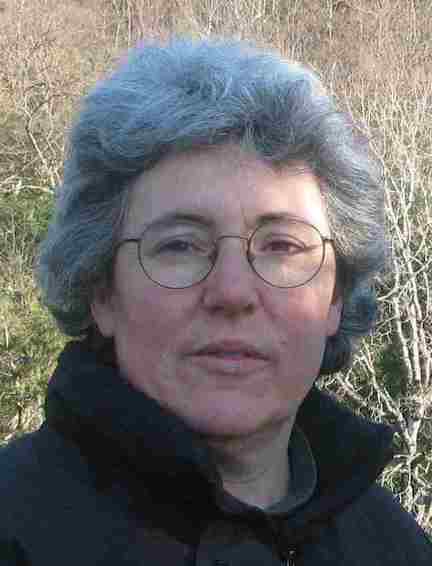A testimony given by Margy Levine Young at the Champlain Valley Unitarian Universalist Society (CVUUS), Middlebury, VT in January 2020
Hello! My name is Margy Levine Young, my pronouns are she/her, and I’m a lifelong Unitarian Universalist.
My grandmother was from Axton, a small town in southern Virginia, in tobacco-growing country. I learned that her mother, “Miss Mags”, one of the Margarets that I’m named for, was a force in that little town — she owned the seed and feed store and the bank. When my grandmother died, she left 200 acres of land to her heirs, including me. We broke it up into many small lots that local people could afford and sold them at a big auction. It was my first close-up view of the little town that my mother visited very summer as a girl.
Many years later, I started thinking about Axton and its history of tobacco-growing. I thought about the money that my grandmother provided for my college education, so that I never had student loans. And I thought about where that money came from.
There’s no doubt that my grandmother’s family owned slaves before the Civil War. I learned recently that there’s a will somewhere in which an ancestor of hers — of mine — included a man named Harrison in the belongings mentioned in his will. I realized that I am the direct beneficiary of slavery.
I probably would never have thought about it if it weren’t for the conversations that we’ve been having here at CVUUS about white supremacy — about the centering of white people in our culture. As an employee of the Unitarian Universalist Association, I’ve also been involved in a multi-year exploration of how we can decenter whiteness at the UUA, in our congregations, and in our lives. But most of all I’ve been inspired and challenged by the words of people right here in this sanctuary, people like Paul and Frances Stone, Joanna Colwell, Rev. Barnaby, and the direct experiences of racism that Francois has shared.
I am the direct beneficiary of slavery. Where do I go with that? Guilt. Denial. Tears. Anger.
I can’t change the past. I can’t even ask my grandmother or mother about it — they are both long gone. I can’t give the tuition money back — who would I give it to? When I gave that question some thought, I realized that what I can do is to make a gesture, something to help people who might be the descendants of the people who my descendants exploited.
I did some research about Historically Black Colleges and Universities and chose one that’s near Axton, Virginia. I didn’t choose one of the famous Black colleges, but an agricultural and technical college that has expanded to become a full-fledged liberal arts and research university — North Carolina A&T in Greensboro, just south of Axton.
I’ve started making regular donations as a small way of giving back, of making amends, of assuaging my guilt, of helping young folks of color get an education. The Ivy League college I went to doesn’t need my money anyway. I’m encouraging all my cousins — fellow beneficiaries of slavery — to join me in making regular donations to their scholarship fund.
When I spoke to a fundraising staffer at the college, she asked whether someone in our family was an alum. “No,” I said, and I explained my reasoning and my plan. I felt like a fool — does this just sound like White guilt? Will the impact of my donations make an impact that’s in any way commensurate with the harm that was done? … I decided that right now, all I can do is to act with my best intention, and try not to worry about what I look like doing it — try to decenter myself and center the folks who were harmed.
I’m grateful for CVUUS for starting me on this journey of identifying, facing, and responding to an uncomfortable truth.
